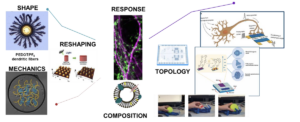Nanofabulous Seminar: Neuromorphic biomaterials for cell interfacing

In the field of organic neuroelectronics, the use of organic polymers shows promising results for the application in biological interfaces, because of their biocompatibility and mixed ionic and electrical conduction. These devices were shown to have neuromorphic properties emulating the synaptic plasticity of biological neuronal networks. Furthermore, they exhibit the ability to be integrated with cells and show response to neurotransmitters. However, they do not exhibit the 2.5D/3D features, characteristic of neuronal cells.
We identified different geometries for the structures that resembles dendritic spines and whole neuronal morphology made of soft and rigid composition. These have been produced via two photon polymerization and electrodeposition of PEDOT-based blends. In particular, thin shapes spines that can initiate contacts with presynaptic terminals, crucial in the early stages of spinogenesis; mushroom shapes that result from the plastic and dynamic reshaping of neuronal circuits during synaptic development; and stubby forms.
Our results show that microelectrodes and in general surface topography can impact directionality and influence neural network remodeling on bioelectronic devices, particularly affecting the growth cone phase, causing a shift from pausing to a resting state. Importantly, we have demonstrated that the growth cone rate changes in response to different pitch configurations. Our research has revealed that biomimetic topographical cues can quickly affect membrane adhesion proteins and enhance efficiency, as shown through the 3D reconstruction integrated into an electrical equivalent model. Looking toward future applications in controlling signal dissipation, this work has the potential to improve the recording of electrogenic cells towards seamless recognition and integration of artificial neuronal electrodes into biological neuronal networks in vitro and in vivo.
Prof Francesca Santoro
Institute of Biological Information Processing IBI-3, Forschungszentrum Juelich, Germany
Neuroelectronic Interfaces, Faculty of Electrical Engineering and IT, RWTH Aachen, Germany
Tissue Electronics Lab, Italian Institute of Technology, 80125, Italy
11:00am, 01/08/2024
Melbourne Centre for Nanofabrication
151 Wellington Road, Clayton, 3168
Zoom link: click here
Meeting ID: 870 7845 6436 and passcode: 394942


